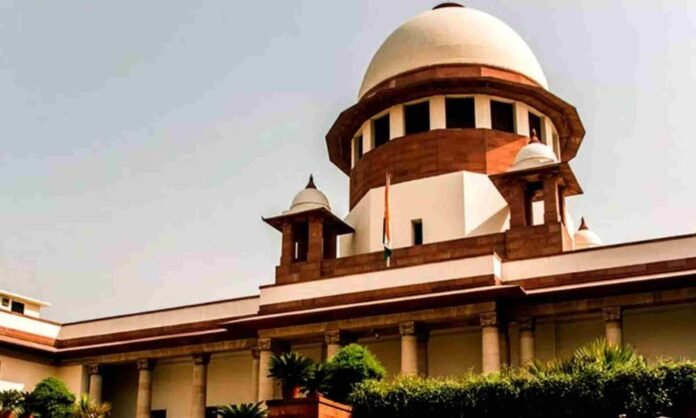The Supreme Court of India on Friday took suo motu cognizance of a shocking case involving a “digital arrest” scam in which fraudsters allegedly forged judicial documents—including orders purportedly issued by the apex court—to extort over ₹1 crore from a senior citizen couple in Haryana.
The bench comprising Justice Surya Kant and Justice Joymalya Bagchi expressed serious concern over the misuse of the Supreme Court’s name, seal, and authority in what it termed a “grave assault on the dignity and majesty of the institution.”
Senior Citizens Defrauded Using Fake Court Orders
According to the order, the case originated from a complaint dated September 21, 2025, submitted by an elderly couple who alleged they were defrauded between September 3 and 16, 2025 by scammers impersonating CBI, Enforcement Directorate (ED), and judicial officials.
The victims said they were shown forged Supreme Court orders via WhatsApp and video calls and were threatened with arrest and property seizure unless they transferred large sums of money.
Under duress, the couple reportedly transferred ₹1,05,50,000 through multiple transactions.
Forgery of Judicial Documents Shocks the Court
The Supreme Court noted that the fraudsters fabricated several fake documents, including a “Freeze Order” under the Prevention of Money Laundering Act, 2002, An “Arrest Order” bearing a forged ED stamp, A “Surveillance Order” with forged judicial signatures, and Fictitious proceedings purportedly before the Bombay High Court.
The Court observed that forgery of judicial orders and misuse of its seal strike at the very heart of public faith in the judiciary.
“These acts cannot be treated as ordinary cybercrimes,” the bench said, adding that they represent “a direct assault on the rule of law.”
Nationwide Investigation Ordered
While two FIRs (Nos. 76/2025 and 77/2025) have already been registered with the Cyber Crime Branch, Ambala, the Supreme Court stressed the need for nationwide coordinated action.
It issued notices to The Union of India (Ministry of Home Affairs), The Central Bureau of Investigation (CBI), The State of Haryana, and The Superintendent of Police, Cyber Crime, Ambala.
The Court also requested the Attorney General for India to assist in the matter and directed the Ambala Cyber Crime Superintendent to file a detailed status report by October 27, 2025.
The bench noted that such “digital arrest” scams—where victims are coerced into transferring money through threats of arrest or legal action—have been increasingly reported across India. The Court emphasized the urgency of pan-India coordination among law enforcement agencies to dismantle this organized cyber network.
Case Details
Case Title: In Re: Victims of Digital Arrest Related to Forged Documents (Suo Motu W.P. (Crl.) No. 3/2025)
Case No.: Suo Moto Writ Petition (Criminal) No(s).3/2025

